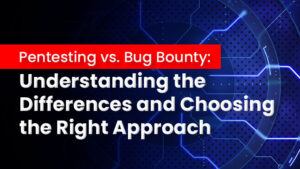Introduction
In recent years, blockchain technology has drastically changed how many sectors operate. Widely accepted as a game-changer in supply chain management, healthcare, finance, and many other industries, this innovative technology has become quite popular. The need for certified blockchain specialists is rising as a result of its rapid popularity. These knowledgeable professionals can create, implement, and oversee blockchain solutions in various industries.
Ready to dive into the exciting world of blockchain technology and carve out a rewarding career path? Gain the expertise you need with comprehensive training from IPSpecialist. Our industry-leading courses cover everything from blockchain fundamentals to advanced development and implementation strategies. Whether you’re a newcomer or an experienced professional looking to upskill, our tailored programs will equip you with the knowledge and skills to excel in this rapidly growing field. Don’t miss out on the opportunity to become a certified blockchain expert. Enroll now with IPSpecialist and take the first step towards a successful career in blockchain technology! Visit ipspecialist.net
What is Blockchain Technology?
There are three valuable concepts under Blockchain: blocks, nodes, and miners.
Blocks: A Block is like a general block, but multiple blocks are used in the chain. Sometimes, it is referred to as Distributed Ledger Technology (DLT), which makes modifying any data or digital asset unalterable. Take a look at this DTL Properties.
Let’s take a simple example to understand Blockchain easily. Suppose you are using Google Docs, and whenever you create a document, share it with others. The actual document isn’t copied or transferred. Instead, it is distributed among the people you share. It is similar to the decentralized distribution chain where everyone can access the document, and the modifications are recorded in real-time.
Therefore, Blockchain is just like a database where the encrypted data blocks are stored and chained together to create a single reliable source for that data. The digital assets in blockchain technology are distributed instead of copying or transferring the document. The shared digital asset is accessible to everyone in real-time, and transparency is made public. Blockchain technology has become more reliable and promising as it helps reduce the risk of fraud and data alteration.
How does Blockchain work?
Blockchain collects the data from a group of individuals known as blocks and stores that information in its databases. The blocks containing the data have a specific capacity to store that information, and when the data is filled in, closed, and linked with other blocks, it creates a chain of data known as a Blockchain.
Let us see how Blockchain works step-by-step below:
Blockchain has three components that contribute to the functioning of this technology, and these three components are Blocks, Hash, and Nodes.

Step-1: Blocks
In this step, the data is stored in blocks where each block contains different data types based on the type of Blockchain. Suppose the data is about a cryptocurrency like Ethereum, then the blocks have the information about the transactions, amount, sender, and receiver. This way, the information it stores is about the type of Blockchain.
Step-2: Hash
Hash works very similarly to the methods used for authentication, such as fingerprints. This hash is also included in the block. A hash is continuously computed on the creation of a block. And if anything is changed within the block, the hash will also change. So, it keeps track of all the changes that are made. However, changing any block requires the computation of a complex mathematical problem, which is extremely difficult.
When a block is successfully mined (“Mined” in blockchain refers to validating and adding transactions to the blockchain ledger through solving complex puzzles, securing the network, and often rewarding miners with cryptocurrency coins.), then the change is accepted by the blockchain network. And in return for this, the miner is rewarded financially, just like it works with Bitcoin or other crypto miners.
Step-3: Nodes
Decentralization is a fundamental concept when we talk about Blockchain technology. A computer or an organization cannot own any chain. But it is distributed among the computers and organizations. This way, the Blockchain is neither copied nor transferred to the organization or a system. It is distributed via nodes. The network algorithm updates, trusts, and verifies the newly mined block.
Key Features of Blockchain Technology
-
Decentralization
Blockchain operates without a central governing authority, relying on participating nodes to validate transactions through consensus mechanisms like Proof-of-Work or Proof-of-Stake. This decentralized structure reduces operational costs and enhances speed.
-
Improved Security
Data accuracy is validated by all network nodes, enhancing security. The decentralized and cryptographic nature of blockchain makes it challenging for hackers to compromise data. The immutability feature ensures permanent and secure transaction records.
-
Greater Efficiency and Speed
Blockchain’s decentralized structure enables quick verification of transactions by participating nodes, eliminating the need for third-party intermediaries. This enhances efficiency, speeds up transaction processing, and reduces costs.
-
Immutability
Transactions are time-stamped and recorded permanently, ensuring that data remains unchanged and secure. This feature prevents deletions, alterations, or modifications in the stored data, making blockchain highly secure for various applications.
-
Improved Transparency
All participating nodes have equal access to the data, promoting transparency within the system. Cryptographic encryption secures transactions, and all nodes can securely access and verify the data entered into the blockchain.
Top 10 Highest-Paying Blockchain Jobs
Here are a few blockchain jobs that are getting high pay:
-
Blockchain Developer
Blockchain developers play a pivotal role in ensuring secure digital transactions. They build systems to securely record and store blockchain data, safeguarding it against hacks or unauthorized modifications.
Blockchain Developers are responsible for designing, implementing, and maintaining blockchain solutions. This includes creating blockchain-based applications, developing smart contracts, and ensuring security and scalability.
Before diving into the field of blockchain, it’s essential to sharpen the following skills: Microsoft SQL Server, MySQL, .NET, AJAX, Visual Studio, Javascript, JQuery, Node.js, REST, Neural networks, Regression, Agile Scrum, and programming languages like C++, C#, HTML, XML, etc.
Average Salary: Approximately $150,000 per year, depending on experience, skills, and location.
-
Blockchain Architect
Responsible for designing and implementing blockchain systems, focusing on architecture, infrastructure, and security aspects. This involves creating networks, protocols, and consensus algorithms and ensuring regulatory compliance.
Average Salary: Approximately $175,000 per year, reflecting expertise in building and maintaining critical blockchain networks.
-
Blockchain Administrator
Oversees the operations of a blockchain network, ensuring optimal functioning, security, and support for participants. Responsibilities include managing nodes, resolving network issues, deploying smart contracts, and collaborating with stakeholders.
Average Salary: Around $84,000 annually, with potential variations based on the company and industry.
-
Blockchain Project Manager
Database systems and blockchain processing are critical components of any enterprise’s systems. These systems must provide high reliability and performance. The role of a Blockchain Project Manager is considered one of the most challenging blockchain jobs in India.
Their responsibility includes overseeing blockchain processing activities and ensuring the systems operate efficiently. This involves managing the intricacies of database systems and blockchain technology to achieve optimal reliability and performance within the enterprise.
Average Salary: Ranges from $120,000 to $170,000 per year, influenced by seniority, location, and company size.
-
Blockchain UX Designer
Designs intuitive interfaces for blockchain-based applications, focusing on user experience. Responsibilities include user research, wireframing, prototyping, and collaboration with developers and product managers.
The increasing and substantial demand positions product managers among the highest-paying blockchain jobs in India.
Average Salary: Between $100,000 and $150,000 annually, with potential variations based on organizational size and complexity.
-
Blockchain Quality Engineer
Blockchain quality engineers play a crucial role in ensuring the high quality of all blockchain spaces and their enhancements. Their primary responsibilities include managing manual testing, automation systems, and dashboards.
They thoroughly examine the developed applications to identify any glitches or issues. Blockchain quality engineers are responsible for addressing bugs within the organization if bugs are found. Their ultimate goal is to ensure the final product is free of any defects.
Specialized in testing and ensuring the quality of blockchain infrastructure. Manages testing pipelines, ensures security and stability, and identifies potential bugs and issues.
Average Salary: Currently ranges from $130,000 to $190,000 annually, showcasing the increasing demand for expertise in this field.
-
Blockchain Consultant
Advises businesses on applying and integrating blockchain into operations. Assists in developing blockchain-based solutions, identifying tech-stack uses, and ensuring regulatory compliance.
Average Salary: Around $175,000 a year, reflecting the high demand for expertise in the industry.
-
Blockchain Legal Consultant
Provides legal advice on the legal implications of blockchain technology. Assists in understanding regulatory requirements, reviews contracts, and addresses compliance with data protection regulations.
The increasing and substantial demand positions legal consultants among the highest-paying blockchain jobs in India. From this standpoint, attorneys can bridge the crypto ecosystem with the existing financial structure by offering the following services:
- Drafting legal agreements
- Conducting negotiations
- Performing due diligence
- Supporting activities such as mergers and acquisitions, etc.
Average Salary: Approximately $150,000 per year, expected to increase as businesses recognize the importance of blockchain technology.
-
Blockchain Engineer
Designs, implements, and maintains blockchain systems. Responsibilities include creating blockchain architecture, resolving technical issues, and staying updated on the latest blockchain technology. Nowadays, Blockchain Engineer falls under the category of highest paying blockchain jobs.
Average Salary: Around $175,000 per year, with variations based on experience, location, and company size.
-
Blockchain Analyst
Studies blockchain data to identify trends and insights for business improvement. Analyzes transaction data, tracks market trends, and possesses strong analytical and technical skills.
Average Salary: Ranges from $70,000 to $165,000 per year, reflecting the complexity and analytical skills required.
Conclusion
Blockchain technology has revolutionized various industries by offering unparalleled security, transparency, and efficiency. With its decentralized nature and cryptographic encryption, blockchain has become a cornerstone for digital transactions and data management. The growing demand for blockchain specialists is evident, with lucrative opportunities available across different job roles. From developers and architects to consultants and analysts, professionals skilled in blockchain technology command high salaries and play vital roles in shaping the future of numerous sectors. As the technology continues to evolve and gain widespread adoption, the need for certified blockchain experts will only increase, making it an exciting and rewarding field to explore.
FAQs
-
How can we start a career in blockchain technology?
To start a career in blockchain, you can begin by gaining a strong understanding of the technology through online courses, certifications, and practical experience. Learning programming languages like Solidity, C++, and Java can be beneficial. Networking with professionals in the field and contributing to blockchain projects or communities can also help kickstart your career.
-
What industries are adopting blockchain technology?
Blockchain technology is being adopted across various industries, including finance, supply chain management, healthcare, real estate, and government. Its applications range from secure digital payments and smart contracts to supply chain tracking and identity verification.
-
What are the future prospects for blockchain jobs?
The future prospects for blockchain jobs are promising, with continued growth and innovation expected in the field. As more industries recognize the value of blockchain technology, the demand for skilled professionals will rise. Specialized roles such as blockchain developers, architects, and consultants are likely to remain in high demand, offering lucrative career opportunities for those with expertise in the field.








